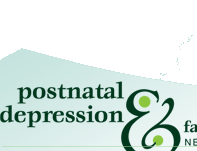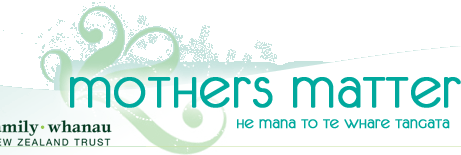 |
 |

|
|
|

Queer Families and Post-Natal DepressionIt can happen to queer parents too By queer, we mean any lesbian, gay, bisexual or transgendered parent. This is an all encompassing term that the authors have carefully considered and believe to be an appropriate term.Sometimes being a lesbian, gay, bisexual or transgendered parent can feel like a pretty invisible position. Its easy for people to make the assumption that because you have a baby, you are in a heterosexual relationship. The transition to becoming a parent is also rife with different kinds of issues, which may present more challenges along the way. Conversely, becoming a queer parent may be a great opportunity to become more comfortable with your own identity, to connect more with your family of origin and to get lots of positive feedback from other people about what a great parent youll be. There is not a lot of research out there, but what research has been done suggests that lesbian mothers may experience slightly higher rates of symptoms of post-natal depression. Importantly, this research also suggests that there might be different kinds of reasons involved. Risk FactorsWhat might be risk factors for post-natal depression in queer parents?
AdvantagesWhat are some advantages to being a queer parent, which might be protective when it comes to mental illness?
What helps?What do Queer parents say has been helpful for them?
Ask for helpMost importantly, remember its okay to ask for help! Good places to do this include: your GP, your midwife, your local mental health services, a counsellor And you have a right to receive treatment that is respectful of your sexual and gender orientation. ReferencesBos, H.M.W; van Balen, F; van den Boom, D.C. (2004) Experience of parenthood, couple relationship, social support, and child-rearing goals in planned lesbian mother families. Journal of Child Psychology and Psychiatry. Vol 45(4) Gartrell, N; Rodas, C; Deck, A; Peyser, H; Banks, A.(2006) The USA National Lesbian Family Study: Interviews with Mothers of 10-Year-Olds. Feminism & Psychology. Vol 16(2) Ross, Lori E (2005) Perinatal Mental Health in Lesbian Mothers: A Review of Potential Risk and Protective Factors. Women & Health. Vol 41(3) Ross LE. Steele L. Goldfinger C. Strike C (2007). Perinatal depressive symptomatology among lesbian and bisexual women. Archives of Women's Mental Health. 10(2) Short, Liz (2007) Lesbian Mothers Living Well in the Context of Heterosexism and Discrimination: Resources, Strategies and Legislative Change, Feminism & Psychology. Vol 17(1)
|
Home | About us | Baby | Books & Links | Contact Us | Culture | Fact Sheets | Family/Whanau | Fathers | Glossary | Medical Info | Medications | Post Natal Depression | Pregnancy | Q&A | Related Conditions | Stories | Support | Treatments |


